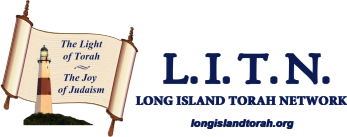For twenty years, Isaac and Rebecca remain childless. Finally, after intense prayer, Rebecca conceives, but a difficult pregnancy makes her think something is amiss. A Heavenly prophecy informs her that she is carrying two children – the fathers of two nations that will struggle for dominance. The children are born, one clutching the heel of the other. The elder is named Esau, indicating that he is “fully formed” with hair all over his body; the younger is named Jacob, from the word for “heel.”
As the children mature, Esau emerges as “a man who knows hunting, a man of the field,” while Jacob is “a wholesome man, sitting in the tents” –a reference to the “tents” of Torah study. Esau returns home famished from one of his outdoor excursions to find Jacob cooking a pot of lentils. Esau asks for food; Jacob offers it in exchange for Esau’s birthright – the rights and responsibilities of the firstborn son, who is destined to carry the legacy of Abraham and Isaac. “I am going to die,” Esau callously replies, “of what use, then, is the birthright to me?” He trades it gladly for a bowl of beans.
A famine in the land of Canaan compels Isaac to move to Gerar, home of the Philistines. Like Abraham, Isaac refers to his wife as his sister, to prevent the lawless natives from killing him to take her. Abimelech, the Philistine king, discovers the truth; he commands his people not to harm Rebecca. Isaac prospers greatly in Gerar, and the envious Philistines block up the wells dug there previously by Abraham. Abimelech tells Isaac to leave the land, but later comes to him for reconciliation, acknowledging that God is clearly with him.
An aging Isaac, unaware that Esau has traded his birthright to Jacob, tells Esau that the time has come for him to receive the Patriarchal Blessings. Esau is to prepare a special feast for the occasion. Esau goes out to hunt game; Rebecca, aware of the truth, commands Jacob to present himself to his blind father as Esau, and receive the Blessings instead. Jacob balks at the idea but ultimately obeys his righteous mother. Rebecca prepares a feast of her own, and uses goatskins to make Jacob’s skin seem hairy like Esau’s.
Jacob enters his father’s chamber masquerading as Esau. “The voice is the voice of Jacob,” declares Isaac, “but the hands are the hands of Esau.” In the end, convinced that the worthy son stands before him, Isaac bequeaths the Blessings to Jacob. Jacob leaves, not a moment too soon. Esau enters, and Isaac informs him that someone else has been there first. Esau lets out an anguished scream, but it is too late. Letting the truth slip, Esau cries out, “He has deceived me twice! He took my birthright, and now he has taken my blessing!” Isaac, realizing the truth, declares, “He shall indeed be blessed.”
Esau decides to kill Jacob. Rebecca instructs Jacob to flee, telling Isaac that Jacob needs to marry and ought to go East to seek a wife. Isaac sends Jacob eastward with his blessing.
Click below to open a printable pdf
| toldos_snapshot_and_closer_look_template_final.pdf | |
| File Size: | 880 kb |
| File Type: | |



